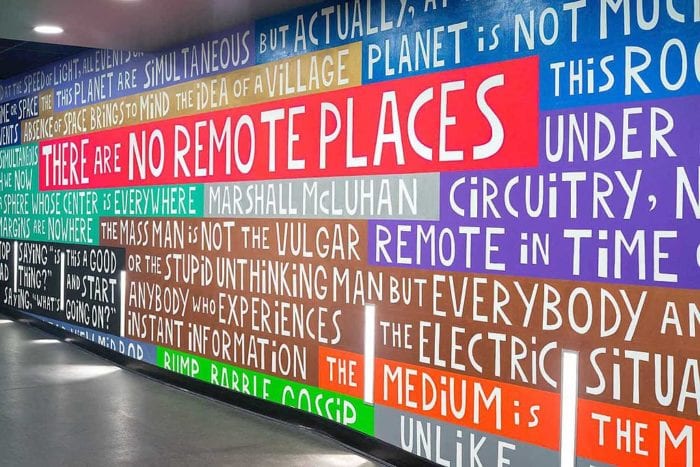
With little guidance from the government, colleges seem to be basing reopening decisions on student morale as well as scientific research.
Throughout June, Boston-area colleges and universities will announce preliminary reopening plans.
At Emerson College, President Lee Pelton wrote in an email to students that the school hopes “to provide an announcement of our best and current thinking about the Fall 2020 term by June 12.” Many other administrations have made similar announcements, with BU President Robert A. Brown telling BU Today that his team is “starting to see a vision of the fall emerge.” It’s a vision that, according to Brown, necessitates COVID-19 tests for the university’s 37,000 students and faculty.
Of course, that’s all from the perspective of top administrators. In reality, the reopening debacle is also the concern of students who pack the halls, moving between classrooms and campus facilities, and squeezing into dorms for parties on the weekends. When was the last time you saw your university president in the dining hall?
Some schools are directly asking their students with help forming plans to reopen. Emerson has included five students as part of its “COVID-19 Response and Recovery Working Group.” All five declined to comment for this story, citing confidentiality, but it appears they have four options to choose from in representing their peers: full residency; an early start with an end before Thanksgiving; online learning; and a mix of residential and online learning. Students were able to vote on these four options in a survey emailed to the whole student body.
“Because Emerson is such a small school, I think we have the privilege of going back in full, or at least with half in class, half out of class,” says Ella Ward, a rising Emerson sophomore. Ward noted that her largest class for next semester has around 20 students in it, meaning that if half of the students participate virtually, the class could comply with any guidelines banning gatherings of more than 10 people.
At Wellesley College, student involvement in the decision to reopen is more lax. While no students are directly involved in the decision-making process, rising junior Stella Ho says that faculty members on the fall planning committee are “going out of their way to listen to their students’ opinions.” One faculty member has been asking students “how much (Wellesely students) would be able to endure, social-distancing wise,” a question that parallels those in the student-wide survey sent out by Emerson.
With little to no guidance from the federal government and state governments scrambling to keep up with the viruses while reopening various parts of the economy, college administrations seem to be basing decisions on student morale as well as scientific research.
In practice, misconceptions about young people and the pandemic can make these decisions extra difficult. While it is widely understood that COVID-19 is most severe in people who are elderly or have preexisting conditions, young people are still at risk. Notably, research has shown that population density and the necessity of work for survival has resulted in high rates of infection for young people living in underdeveloped parts of the world. While Boston’s hardly underdeveloped, college campuses are often self-sufficient, miniaturized cities, meaning that they have an unusually high population density.
Despite the risks, in-person classes are an essential part of the learning process for people like Ward, the Emerson student, who is considering a career in broadcast journalism.
“A lot of this stuff can’t be done remotely,” she says. “Not just for classes, but also for extra-curriculars. … I have stuff planned that I couldn’t really do if we are online.”
As for any expectations Ward has for the upcoming reopening announcement by Emerson, she says she supports “whatever is best for the community.” It remains to be seen if there’s a process that can yield that result.
This article was produced in collaboration with the Boston Institute for Nonprofit Journalism as part of its Pandemic Democracy Project.
HELP DIGBOSTON WEATHER THIS STORM AND CONTINUE PROVIDING ARTICLES LIKE THIS ONE
Max is a journalist in training at Emerson College. He tells stories about young people.

